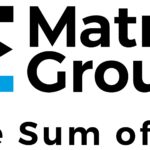Ogilvy launches Cultural Relevance approach to make brands matter and supporting tool “ADAM”, an advanced mapping tool that brings planning rigour to influencer and micro-influencer identification.
Ogilvy South Africa this week launched its public relations and influence-led Cultural Relevance strategic framework, an innovative new addition to its set of tools developed to help brands and companies matter to their audiences.
 “No longer is it about communicating reasons to believe from a brand or organisation point of view, rather it is about truly understanding what will support credible participation in the lives of customers themselves. The essential insight of the Cultural Relevance philosophy is that for brands to matter, they need to take action and do things people value, not what brands value. Being ‘in-step’ and accurately reflecting the reality of audiences is critical,” said Ogilvy Chief Strategy Officer for Influence and PR in EMEA, Serge Vaezi.
“No longer is it about communicating reasons to believe from a brand or organisation point of view, rather it is about truly understanding what will support credible participation in the lives of customers themselves. The essential insight of the Cultural Relevance philosophy is that for brands to matter, they need to take action and do things people value, not what brands value. Being ‘in-step’ and accurately reflecting the reality of audiences is critical,” said Ogilvy Chief Strategy Officer for Influence and PR in EMEA, Serge Vaezi.
“The days of interruptive marketing are happily coming to an end, as consumers gain the power to choose what they watch, read, and experience. Brands now need to earn the right to communicate, winning the trust of audiences by showing they understand the societal context through action,” said Vaezi.
Ogilvy has identified five critical “big behaviours” that boost cultural relevance and facilitate the journey for brands that matter more to the audiences they want to influence:
- Lead, with a clear, consistent point of view;
- Respond, and be willing to converse;
- Reciprocate, and give back;
- Create useful experiences; and
- Convene, by building communities
“Cultural relevance requires an outward-looking philosophy and a fundamental new understanding of brand engagement,” said Ogilvy Johannesburg Head of Strategy for influence and PR, Dustin Chick.
“To be culturally relevant, brands need to add to the culture and earn the right to be talked about. Becoming culturally relevant is not about hijacking conversations but about enhancing them. Innovation is essential. But so is good, old-fashioned storytelling and a strong connection to the culture of the moment,” said Chick.
The Cultural Relevance framework is expected to fundamentally change the role of earned media in communication, heralding a change from distraction brands to action brands.
Cultural relevance will become something brands create through their actions, as opposed to something they aspire to, or search for through their communications. Actions speak louder than words
To reach audiences via influencers who command real engagement, Ogilvy has also developed ADAM (the Audience Data Analytics Model) a proprietary algorithm that identifies important conversations and protagonists based on brand objectives and target audiences. ADAM mirrors the sophistication and rigour of media planning in finding influencers, with a process that unlocks access to valuable micro-influencers with genuine commercial value to brands. The integration of Cultural Relevance-led planning and ADAM as a mapping tool delivers real, measurable ability for brands to connect with the right audiences about what matters to them most.
“Ogilvy’s learning from ongoing audience data analysis and surveying is that only by being attuned to their core audience and keeping up with cultural shifts can brand content gain the social currency that people choose to consume and share,” said Vaezi.
To coincide with the launch of the Cultural Relevance framework, Ogilvy has released a global report titled Unearthing the Behaviour of Culturally Relevant Brands, using data gleaned from a survey of 1 000 adults on their attitudes to brand behaviours.
Key findings were that:
- Action behaviours drive brand approval and make brands matter. About 66% of respondents said they would recommend a brand that took a more active, action-behaviour approach.
- Young people expect action from brands. Around 80% of 18-34 year olds are most likely to recommend brands that perform action behaviours
- Even older generations favour action brands. Over-65s are the least engaged with brands and marketing, but 52% of those 65 and over say they are likely to recommend brands that perform action behaviours.
The Ogilvy study confirms that action behaviours are central to the success of culturally relevant brands. Action behaviours appeal to a human need for authentic, relevant communication that makes us feel value.
The Cultural Relevance framework, and the ADAM model are already available to help Ogilvy clients gain market insights and find action behaviours that best express their understanding of their audiences.
- MRF Unveils Latest MAPS® Data - 20th February 2025
- The BRC announces changes to the board and updates for 2025 - 17th December 2024
- Top 50 DSTV TV programmes – October 2024 - 12th November 2024





